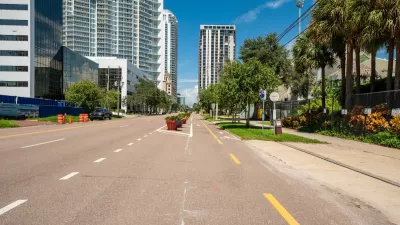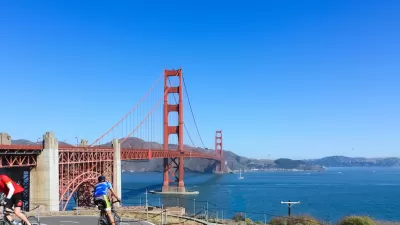Rolling stops by bicyclists get a bad rap, particularly among motorists who perceive them to be breaking the law. But new research shows laws that allow for rolling stops for cyclists do not lead to unsafe behavior by either group.

According to a study out of Oregon State University, “Laws that let bicyclists treat stop signs as yield signs lead neither riders nor motorists to act unsafely,” according to a new story out of the university’s newsroom. According to the study’s leader, David Hurwitz, the findings are important as more and more states consider bicycling rolling-stop legislation. Rolling stop advocates say rolling stops allow riders to keep their momentum through intersections — where nearly half of all bicycle-car crashes happen — “theoretically reducing intersection congestion and crash risk because the cyclists are getting through the intersection faster,” the article explains.
The project was conducted by the OSU College of Engineering and used a “novel experimental technique” of linking separate bicycle and motor vehicle simulators, running 60 subjects in pairs simultaneously, and having each subject interact with an avatar of the other in a virtual world. The pairs went through 16 “live-interaction scenarios related to a bicyclist and motorist encountering one another at a four-way, stop-controlled intersection, according to the article. Study lead Hurwitz said they evaluated safety-relevant behaviors associated with laws stemming from the “Idaho stop,” which was passed in 1982 but largely ignored around the country until 2017 when seven states enacted bicycle rolling stop laws.
“The focus of previous research has been crash-data analysis and why riders are motivated to do a rolling stop even when it’s illegal in their state … No one has looked at how well bicycle rolling-stop laws work, or what happens when you educate people about them. Our networked simulator study design let us evaluate driver and rider behavior and their understanding of the law,” Hurwitz told the Oregon State University Newsroom. Their findings also indicate outreach and education about rolling stops would be useful: After receiving education about rolling-stop laws, Hurwitz said bicyclists preferred to yield rather than stop and went through intersections faster, while drivers approached intersections either more slowly or at a similar speed instead of becoming aggressive toward cyclists they would have previously perceived as breaking the law.
FULL STORY: Bicycle rolling-stop laws don’t lead to unsafe behavior by riders or motorists, research shows

Florida Considers Legalizing ADUs
Current state law allows — but doesn’t require — cities to permit accessory dwelling units in single-family residential neighborhoods.

Manufactured Crisis: Losing the Nation’s Largest Source of Unsubsidized Affordable Housing
Manufactured housing communities have long been an affordable housing option for millions of people living in the U.S., but that affordability is disappearing rapidly. How did we get here?

Americans May Be Stuck — But Why?
Americans are moving a lot less than they once did, and that is a problem. While Yoni Applebaum, in his highly-publicized article Stuck, gets the reasons badly wrong, it's still important to ask: why are we moving so much less than before?

EV Chargers Now Outnumber Gas Pumps by Nearly 50% in California
Fast chargers still lag behind amidst rapid growth.

Affordable Housing Renovations Halt Mid-Air Amidst DOGE Clawbacks
HUD may rescind over a billion dollars earmarked for green building upgrades.

Has Anyone at USDOT Read Donald Shoup?
USDOT employees, who are required to go back to the office, will receive free parking at the agency’s D.C. offices — flying in the face of a growing research body that calls for pricing parking at its real value.
Urban Design for Planners 1: Software Tools
This six-course series explores essential urban design concepts using open source software and equips planners with the tools they need to participate fully in the urban design process.
Planning for Universal Design
Learn the tools for implementing Universal Design in planning regulations.
City of Moreno Valley
Institute for Housing and Urban Development Studies (IHS)
City of Grandview
Harvard GSD Executive Education
NYU Wagner Graduate School of Public Service
City of Cambridge, Maryland
Newport County Development Council: Connect Greater Newport





























